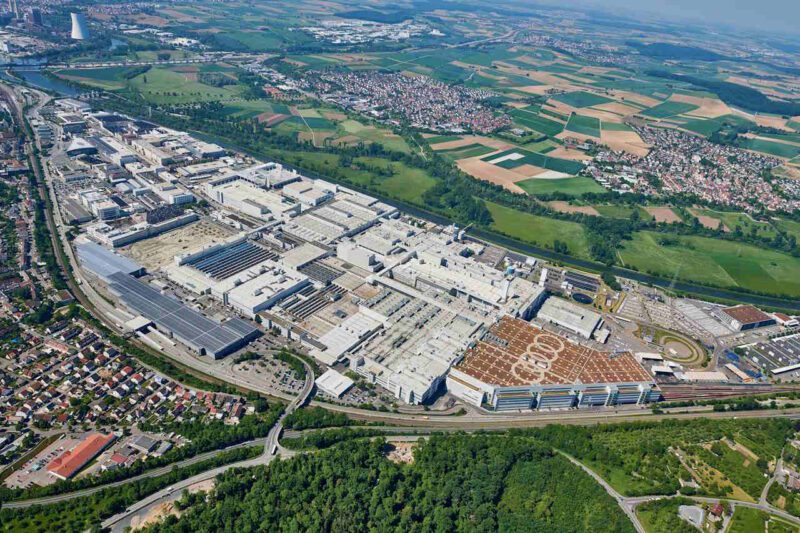German luxury automaker Audi announced on Monday that it would cut 7,500 jobs by 2029 as part of an effort to increase “productivity, speed, and flexibility” for its transition to electric mobility, while also promising an “entry-level” electric vehicle (EV).
Audi, a subsidiary of the Volkswagen Group, made the announcement in a statement on Monday. Billed as an effort to position its German manufacturing sites “to be robust and flexible for the transition to electric mobility”, the it will nevertheless result in up to 7,500 jobs being cut “in indirect areas” by 2029.
“We are focusing our team setup and consistently orienting it to the requirements of the future,” said Xavier Ros, member of the board of management for human resources.
“We are doing this in a socially responsible targeted, step-by-step manner. To this end, we are now entering into a dialog with our employees. The employee representatives are our close partners every step of the way. Our shared Audi path makes us strong and stable.”
Audi claims that this reduction in job goes “hand in hand” with a parallel effort to slash its administrative bureaucracy and realign its portfolio.
In an effort to ameliorate the effects of the job cuts, Audi also extended the job protection plan for employees at its German sites through to the end of 2033 and confirmed its strategic production capacities, heading off concerns that the company might shift EV production to cheaper countries.
Specifically, Audi will make an entry-level electric model at its Ingolstadt plant as well as share production of the upcoming Audi Q3 with its Hungarian plant in Győr. Audi’s Neckarsulm site will also be strengthened through a focus on digitalization expertise in the field of artificial intelligence.
“We were able to future-proof both sites,” said Rainer Schirmer, vice chairman of the General Works Council.
“For Neckarsulm, this means, among other things, that we were able to secure a ‘future fund’ for plant development, which we can use to set up new production platforms – for future electric models. To this end, Neckarsulm is to be expanded as an AI and digitalization centre for the entire Audi Group. The focus here will be specifically on the area of production.”
All told, Audi is investing around €8 billion at its German factories through 2029, and expects to save over €1 billion annually in the medium-term.
Joshua S. Hill is a Melbourne-based journalist who has been writing about climate change, clean technology, and electric vehicles for over 15 years. He has been reporting on electric vehicles and clean technologies for Renew Economy and The Driven since 2012. His preferred mode of transport is his feet.


